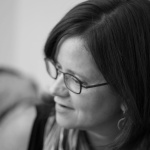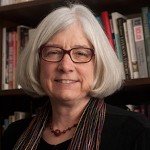Critical / cultural studies (CCS) research investigates the relationship between communication, power and culture. Frequently, popular culture works to support oppressive power structures, but popular culture can also be produced by the people or the masses and therefore provides a space for potential political resistance. As such, critical / cultural scholarship on media and popular culture aims to analyze how the institutions, practices, and discourses that make up popular culture — media intended to be consumed by the “people” or the “masses” — reinforce dominant power structures like those organized around sex, race, gender, class and ability. At the same time, critical / cultural scholars are equally concerned with how popular culture can work to oppose these oppressive power relations.
CCS scholarship has been a valuable contributor to communication studies in general, but it has perhaps been especially influential on Media and Technology Studies (MTS). This is because CCS advocates for taking the cultural and political influence of popular media seriously. This article reviews the development of critical / cultural approaches to the study of media and popular culture and discusses some primary themes in this scholarship that influence approaches to media and technology studies. It discusses critical / cultural scholarship’s historical roots; its major contributions to the study of media, technology, and popular culture; and the state of contemporary critical / cultural scholarship on these topics.
The Frankfurt School and the Foundations of Critical / Cultural Media Research
The Institute for Social Research, more often called the Frankfurt School, was established in 1924 in the Weimar Republic. A liberal democracy at the time, within a decade the government would be dissolved by Adolf Hitler and his supporters and replaced with the fascist state of Nazi Germany. As such, the Frankfurt School’s approach to understanding media developed at the epicenter of the global violence of the World Wars. Hitler’s ascent to power forced the institute’s relocation to Geneva and then to New York City where it temporarily became part of Columbia University. Worse, Walter Benjamin, one of the institute’s most celebrated minds, spent years in exile and ultimately died by suicide after being detained in Spain. The Frankfurt School wouldn’t be re-established in Germany until 1955.
Following the World Wars, Max Horkheimer, Theodore Adorno, and Herbert Marcuse published a number of seminal texts critiquing the mass culture of the 20th century. Heavily influenced by the economic and philosophical thought of Karl Marx as well as Freudian psychoanalysis, the thinkers of the Frankfurt School aimed to identify the economic, social and political relations that explained the character of 20th century culture. The Institute’s approach to media focused on the relationship between capitalism and culture embodied in the “culture industry.” The culture industry is made up of institutions like film studios and television networks responsible for producing the media that gets consumed by mass audiences and, consequently, makes up “mass culture.”
Two essays, Benjamin’s “The Work of Art in the Age of Mechanical Reproduction” (1935) and Max Horkheimer and Theodore Adorno’s co-authored text “The Culture Industry” (1944), best represent the Frankfurt School’s critical approach to media. The former is perhaps Benjamin’s best known essay. In it, he observes how photography and film enable the reproduction and circulation of artworks and argues this fundamentally changes the “aura” of the art object, which derives from its singular presence in space (e.g., a gallery).
Similarly, in the latter essay Adorno and Horkheimer critique the homogeneity of mass-produced media. They identify in the “culture industry” the emergence of an economic sector dedicated to the production of art and popular culture. The culture industry functions, they argue, to rob culture of its political potential and turn it, to paraphrase Marx, into an opium for the masses. The media produced and circulated by the culture industry functions to promote ideologies that uphold the dominant political order and ensure the popular consent of the people to the rule of those in power. The Frankfurt School is, in this way, responsible for founding a tradition of ideological criticism that reads media texts for their ideological content.
The Frankfurt School took a very different approach to studying media than the social scientific research being conducted in the UK and North America during the interWar period, which bracketed the issues of class and power that are central to the Frankfurt School’s research. At the same time, as discussed further in our Introductory Guide to Media and Technology Studies, these two scholarly traditions stem from similar fears about the political consequences of mass media and mass culture. Moreover, the Frankfurt School’s research and social scientific scholarship face similar criticism from subsequent scholars. The Frankfurt School’s critics argue that their positions are deterministic; like media effects research, they assume media have a direct, persuasive or ideological influence on society and make little room for the idea that audiences might resist or reinterpret their meanings. In 1964, Richard Hoggart founded the Centre for Contemporary Cultural Studies in Birmingham with the aim of offering an approach to media and culture that overcomes these problems.
Spotlight on Scholarship – Featured Scholars in Critical / Cultural Studies in Media and Popular Culture
Discover how contemporary scholars of critical / cultural studies are examining popular media forms and their cultural and political implications across a variety of contexts, from communication technologies to feminist coalition-building and the analysis of sound and music.
Dr. Jodi Dean is a Professor of Political Science at Hobart and William Smith Colleges in Geneva New York. She has authored or co-authored more than ten books, including Publicity’s Secret: How Technoculture Capitalizes on Democracy (Cornell 1998) and Democracy and Other Neoliberal Fantasies (Duke 2009). While Dr. Dean is professor of Political Science, her research has been especially important to critical / cultural studies of communication because they focus on how 21st century media technologies produce what she calls “communicative capitalism.” She also actively draws from and contributes to critical / cultural scholarship, for instance in the 2000 edited volume Cultural Studies and Political Theory (Cornell). Dr. Dean serves as a co-director of the Pluto Press book series Digital Barricades. She is also politically engaged, and works with the feminist organization The Geneva Women’s Assembly.

Dr. Jeremy Gilbert is Professor of Cultural and Political Theory at the University of East London and edits the journal New Formations. In 2020, he held an appointment at Brown University as Visiting Professor of Humanities. His critical / cultural research focuses on political movements, media technologies, and popular culture and how they relate to collective forms of politics. Dr. Gilbert is an engaged scholar who marries theory with practice. His research in popular culture is particularly interested in popular music, and outside of the academy Dr. Gilbert is a practicing DJ. Similarly, his research on politics and social movements expresses itself in his real world political activism. He is also committed to public scholarship and hosts a series of free public lectures called Culture, Power, Politics. Dr. Gilbert’s most recent books, both published in 2021, are Twenty-First Century Socialism and Hegemony Now: Power in the Twenty-First Century, which is coauthored with Alex Williams.

Dr. Safiya Noble is Associate Professor in the Department of Information Studies and the Department of African American Studies at UCLA, where she has won wide recognition in her early career. Her critical scholarship engages with the relationship between digital media, power, and cultural difference with a focus on racism and sexism. Her book, Algorithms of Oppression: How Search Engines Reinforce Racism, published in 2018 by NYU Press, is an important scholarly work on the politics of digital platforms and also a best-selling work of popular criticism. Dr. Noble is also an editor for several critical publications on technology including The Intersectional Internet: Race, Sex, Culture and Class Online and Emotions, Technology & Design.

Dr. Jennifer Daryl Slack is Full Professor of Communication and Cultural Studies at Michigan Technological University, where she has been committed to developing the departments curriculum in media and technology studies and critical / cultural studies on the undergraduate and graduate level. Dr. Slack has published a number of influential texts on cultural studies and technology, not least her book with Jeremy Wise Culture and Technology: A Primer, which serves as an essential introduction to critical / cultural studies of technology for graduate students and prospective graduate student. In addition to her academic work, Dr. Slack is a pastel painter and exhibits her work nationally.

Dr. Jonathan Sterne is Professor and James McGill Chair in Culture and Technology at McGill University in Toronto. His research explores the relationship between popular culture and technology with a specific focus on technologies related to sound and music. His books, for instance, include The Audible Past: Cultural Origins of Sound Reproduction and MP3, each examining the ways in which media technologies affect the cultural experience of listening. Dr. Stern is currently engaged in a research projects with his students at McGill that examines the politics of using artificial intelligence to produce media content. His recent research has also begun to critically consider the relationship between media technologies and ability, with his newest book Diminished Faculties: A Political Phenomenology of Impairment is forthcoming from Duke University Press in 2021.
British Cultural Studies and Popular Culture
The Centre for Contemporary Cultural Studies founded British cultural studies, sometimes called culturalism, and offered a way forward for the critical cultural project of the Frankfurt School. Cultural studies takes issue with the Frankfurt School’s determinism, but is intent on retaining the “critical” element of their critical-theoretical approach. Cultural critics reject the idea that media technologies simply work to support the dominant economic structure and stress the activity of audiences. At the same time, they do think that media technologies and media discourses play a hugely important role in determining the organization of power in a given culture. Rather than abandoning the idea that the media constructs power relations, British cultural studies set out to make this account more nuanced by considering the relationship of media and popular culture to power structures beyond class, like racism and patriarchy.
Popular culture’s critics typically associate it with the fall of high culture, but there is disagreement about who is responsible for this decline. Some position popular culture as those forms of media produced by the people themselves, while others refer to popular culture as those forms of media produced by the culture industry to be consumed by the masses.
This is an important distinction. As discussed in the previous section, the Frankfurt School offered one such critique of popular culture in their analysis of the culture industry. For the Frankfurt School, popular culture is the product of media industries working to uphold the dominant capitalist order. This critique of popular culture does not argue that “the people” produce the problems of mass culture, but rather that dominant institutions work to make mass culture homogenous because it serves the interests of the powerful.
On the other hand, many reactionary critiques of popular culture are hostile toward “the people.” Critiques of rock and roll and hip hop in the United States and punk in the UK stem from a racist and classist defense of high culture that seeks to exclude artistic forms generated by “the people.” For example, Stuart Hall (1993) argues that, though Black people have been subject to violent oppression and political marginalization in the United States, American popular music is dominated by the music of “Black popular culture.” What counts as “popular culture,” Hall argues, is socially constructed and emerges from power relations specific to that context. When Black music gets incorporated into mass culture, it does not diminish the political marginalization of Black people in the United States. It does, however, mean that Black popular music becomes a dominant part of the United States’ culture and provides some of its major artistic traditions.
Cultural studies has been important to media and technology studies (MTS) because of its unique approach to understanding the politics of media that its scholars have developed through their explorations of popular culture. For cultural studies, the popular encompasses many different forms of media, from print media to television to computer mediated communications. Critical / cultural studies encourages us to look at the popular as a field of struggle in which multiple forms of media interact; some complementing or augmenting one another, some competing and clashing. Through their research on popular culture, cultural critics like Richard Hoggart, Paul Gilroy, Stuart Hall, and Raymond Williams laid the foundations for a critical engagement with the politics of media that would later be popularized in the United States by thinkers like James Carey and Lawrence Grossberg.
Critical / Cultural Studies and Representation
As discussed in the last section, cultural studies inherits a critical view of the media industry from the Frankfurt School that aims to expand beyond its overly economic focus. Opening its analysis of power beyond the economic leads cultural studies scholarship to engage in direct dialogue with feminist thought and critical thought on race and racism. This early engagement with the politics of media representations continues to influence scholarship in media and technology studies today.
Stuart Hall’s (1997) account of representation is one of cultural studies’ most significant contributions to academic research on the politics of media representations. In his foundational essay on the topic, Hall poses that language has been understood primarily in one of two ways: as reflecting the world it describes as it really is, or as carrying the message that was intended by the speaker. In either case, the assumption is that communication is an unproblematic event, where one speaker simply transmits information to an audience who receives the message without misunderstanding. Hall rejects both definitions, arguing instead that language is a form of mediation. Language and media, like the visual communication of television, represent the world, but only insofar as they “re”-present it: present it again, but with a difference.
For cultural scholars, representation matters because it works to produce the world it describes.
Communication is always mediated through the standpoint of a speaker who is situated in a specific cultural context. Representations in media and popular culture do not reflect some objective reality but are the product of social, cultural and economic relations and, as such, also the product of certain relations of power. Therefore, critics should read the discourses of popular culture for evidence of the struggle between power and those who resist it.
Beyond Representation: Popular Culture and Active Audiences
What is represented in popular media is not, itself, sufficient to understand the politics of popular culture. Power impacts popular media on a number of different levels: who gets to produce media; what resources, techniques and technologies are at their disposal; how their labor is valued; the content of the media they produce; who gets to consume it; how audiences receive or interpret it, and more. Therefore, the cultural or political significance of media and popular culture is always contextually specific and involves understanding how the production, circulation, and reception of media interact in a specific cultural setting.
For example, one of the most important contributions cultural studies makes to the study of popular culture is the idea of the “active audience.” Because representations construct rather than reflect reality, they can be manipulated with great political and social consequences; on the other hand, they can also be resisted, reinterpreted, and used in ways that are distinct from the original creator’s intent. Cultural studies scholars like Hall and Grossberg maintain that audiences are not “cultural dupes” and that power’s representations of race, for example, are not simply passively consumed by their audience. In arguing audiences are active participants in the creation of media’s meaning, cultural studies contrasts itself from media effects models of communication, which view audiences as the passive recipients of messages, and Marxist views of media culture that view it as mere reflection of dominant economic interests (Hall 1973).
In place of these views, cultural studies maintains audiences have interpretive agency – that is, how the audience receives and reinterprets media matters as much as the intended political message of that media. According to Hall, there are, in fact, three ways in which an audience can interpret or “decode” a message. They can accept the text the way it is encoded, they can “negotiate” the meaning of the text by applying their own cultural codes to its interpretation, or they can produce “oppositional” readings that reject or subvert the received view of the text.
As Hall argues, representation is, foremost, a site of struggle. This is true on several levels: who gets to do the representing, what gets represented, and, often overlooked within prior scholarship, how representations get interpreted by their audiences. The implication for the analysis of popular culture is that dominant representations of the world are not determining; they can be resisted and reappropriated by their audiences. This description of the active audience assigns more agency to audiences than either social scientific or critical research had up until this point, and sets the stage for the development of audience studies as a popular approach to analyzing media culture. Hall’s theory of representation has influenced how many critical scholars understand the relationship between identity, politics, and representation.
In a relatively famous example, feminist literary critic Janice Radway (1984) conducted a study with women who avidly read romance novels. Such novels, Radway argues, contain misogynistic power structures, plot conventions, and character tropes. At the same time, the part of romances that resonated most with these audiences was the attentiveness and hidden warmth of male figures in the novels. Women, Radway concluded, indulged in these misogynist texts to fulfill emotional needs unmet within patriarchal culture. The politics of reading romance novels was, therefore, complicated by considering the active interpretations of the audience: on the one hand, a consumption of misogynist tropes, on the other hand an act of rebellion.
This does not mean representations lack power, or that the audience possess absolute authority over how a text gets interpreted, as discussions of “active audiences” sometimes imply. Like any cultural practice, how one reads is informed by the relationship between culture and power — it is not simply voluntary. For more information, check out our article on Critical / Cultural Studies, Identity, and Representation, which considers feminist criticism, critical scholarship on race, and intersectional thought more closely.
Critical / Cultural Studies and Popular Culture Today
Like communication research on media and technology more generally, critical / cultural research on popular culture has been fundamentally changed by the innovation of the Internet. As discussed above, a central question in popular culture research has been what role the “people” play in popular culture. Social media further blurs this distinction between culture produced by the people and culture produced for mass audiences by making user-generated content one of the major forms of mass culture. Forms of computer-mediated communication like social media platforms have therefore transformed popular culture and, in turn, created new avenues for critical / cultural media research.
Today, critical / cultural analyses of social media culture consider how certain types of social and political relations have been enabled by digital technologies and how these relate to power hierarchies and the capacity for resistance. Indeed, one of the most central debates about digital technologies concerns their impact on democratic culture.
Contemporary critical / cultural communication research in popular culture continues focus on the media industry, representation, and popular culture while adapting to shifts in the larger political and cultural landscape. Some critical / cultural approaches to digital culture and social media still consider the politics of media representation. Safiya Noble’s (2018) Algorithms of Oppression, for example, discusses how social media’s use of sorting algorithms, search engine optimization, and metadata has the alarming tendency to proliferate racist tropes and stereotypes on search engines like Google. The political significance of these algorithms lies, not only in what they represent, but also in the way in which they create logics of association between, for instance, Black teenagers and criminality.
Other contemporary research in critical / cultural studies stresses the importance how the media industry and popular culture is structured and organized. Jodi Dean (2009), for example, argues that the problem with social media is not necessarily the type of political discourse that occurs on digital platforms, but that this discourse happens in a contained space where political discourse is cut off from political action. In a similar spirit, some critical / cultural scholars study the “political economy” of media and popular culture by tracing the ways in which media technologies and elements of popular culture require certain economic relationships that have their own social and political consequences.
The politics of the media industry and its representations are related but can have important differences. For example, the diversification of representations in media is undercut when the media industry as a whole remains predominately white and male. Similarly, the democratic potential of social media is undermined if sustaining digital networks involves exploiting workers in non-Western countries, or if access to digital media is inequitably structured on the basis of class or cultural identity. On the other hand, oppositional representations and interpretive strategies can appear in popular culture. These complexities and tensions are why cultural studies maintains that popular media and popular culture must always be understood contextually, as a space of both cultural control and political resistance.
Sources and Additional Resources
To learn more about critical / cultural studies and academic research being conducted on media, popular culture, and its sociopolitical consequences, check out the following resources:
- Adorno, Theordor and Max Horkheimer. (1947). “The Culture Industry: Enlightenment as Mass Deception” in Dialectic of Enlightenment, Los Angeles: Stanford University Press, 2002.
- Benjamin, Walter. (1935). “The Work of Art in the Age of Mechanical Reproduction,” in Media and Cultural studies: KeyWorks. Malden: Blackwell, 2001, pp.18-40.
- Dean, Jodi. Democracy and Other Neoliberal Fantasies. Durham: Duke University Press, 2009.
- Dean, Jodi. ed. Cultural Studies and Political Theory. Ithaca: Cornell University of Press, 2000.
- Gilbert, Jeremy. Anticapitalism and Culture: Radical Theory and Popular Politics. Oxford: Berg, 2008.
- Gilbert, Jeremy, and Ewan Pearson. DISCOGRAPHIES: Dance Music, Culture and the Politics of Sound, London: Routledge, 1999.
- Hall, Stuart. (1973). “Encoding and Decoding in the Television Discourse” in Essential Essays, Volume 1: Foundations of Cultural Studies, ed. David Morely Durham: Duke University Press, 2018.
- Hall, Stuart, Representation: Cultural Representations and Signification, New York: Sage, 1997.
- Hall, Stuart. (1981). “Notes on Deconstructing the Popular.” in Essential Essays, Volume 1: Foundations of Cultural Studies, ed. David Morely Durham: Duke University Press, 2018.
- Hall, Stuart. (1993). “What Is This ‘Black’ in Black Popular Culture.” Social Justice: a Journal of Crime, Conflict and World Order, Vol. 20, no. 1, pp. 104-115.
- Hooks, bell. “The Oppositional Gaze: Black Female Spectators” in Black Looks: Race and Representation, London: South End Publishing, pp. 115-131, 1992.
- Noble, Safiya. Algorithms of Oppression: How search engines reinforce racism. New York: NYU Press, 2018.
- Radway, Janice, Reading the Romance: Women, Patriarchy, and Popular Literature. Chapel Hill: The University of North Carolina Press, 1984.
- Sterne, Jonathan. (2006). “The Mp3 as Cultural Artifact.” New Media & Society, Vol. 8, No. 5, pp. 825–42.
Additional Topics on Research in Critical / Cultural Studies

This article discusses the history and social significance of critical/cultural studies in the field of communication scholarship, including its role in popular culture, racial and ethnic identity, and representation, political movements, and social justice.

This article explores critical / cultural studies research on representation, identity, and difference. Learn how cultural critics have studied the role of media in shaping popular understandings of social and cultural identity, and about the importance of the production and reception of media in the cultural politics of media.


